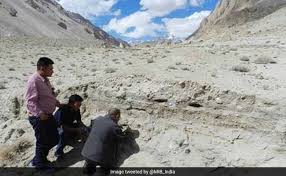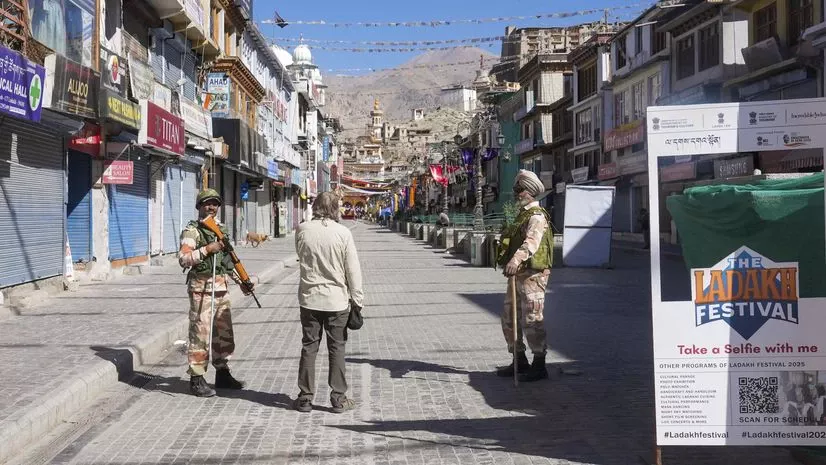 The Archaeological Survey of India (ASI) has discovered a 10,500-year-old (8,500 BC) camping site at a height of 14,000 feet en route the Karakoram Pass in Ladakh. There is an evidence of human activity at the camping site for about 800 years.
The Archaeological Survey of India (ASI) has discovered a 10,500-year-old (8,500 BC) camping site at a height of 14,000 feet en route the Karakoram Pass in Ladakh. There is an evidence of human activity at the camping site for about 800 years.
The site is in the Nubra valley on the way to Saser La which leads to the Karakoram Pass.
While exploring the Nubra valley in 2015-16, Dr SB Ota, Joint DG, ASI, observed both sides of the hill and valley as the serpentine road gradually climbed along the Saser stream. After a distance of around 22 km, there was a section which had been exposed due to road construction.
It was a small flat area with snow-covered peaks on one extreme, dry barren land with loose rocks all around and gushing stream within the deep western gorges, an ideal place for camping in a picturesque setting. A charcoal sample from the site was sent to a lab in Florida, US, for radiocarbon date determination. The site was dated 8,500 BC — the very first for the region.
A team of ASI officials and outside experts inspected the site in July, 2016, and collected more charcoal samples and bones. Preliminary studies of charred bones carried out by Prof PP Joglekar of Deccan Collage, Pune, have shown the presence of gorals and yaks.
The research so far has proved the antiquity and nature of human activities to an extent, but their camping patterns, extent of camping area, tools and other cultural aspects are yet to be traced. The ASI is now planning further archaeological excavations and explorations of the site.
10,500 Year-old camping site found in Nubra Valley




